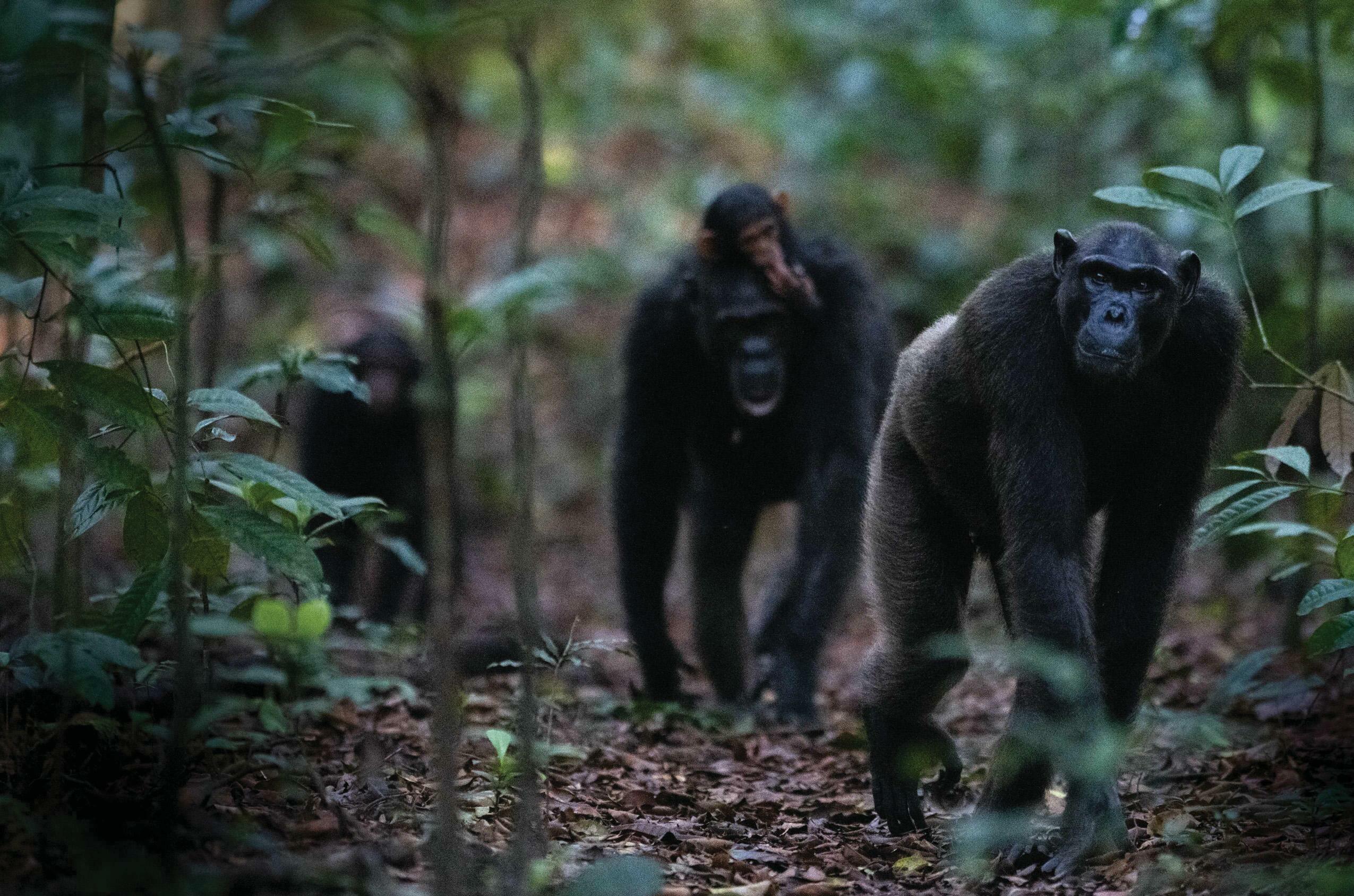
On the ground
The Rekambo chimpanzee community (rekambo means 'where English is spoken' in the local language) consists of about 40 individuals. The Ozouga Chimpanzee Project team, led by Tobias Deschner and Simone Pika, head of the comparative biocognition research group at Osnabrück University's Institute of Cognitive Science, has documented previously unknown chimp behaviour in Gabon's Loango National Park.
Green mosaic
An aerial view of Loango National Park in Gabon. This protected natural paradise is a hotspot of biodiversity, containing a mosaic of different habitats including rainforest, wetlands, lagoons, savannahs, coastal rainforest, floodplains and mangrove forest. The park covers about 1,500km² and is managed by Gabon's National Agency for National Parks (ANPN).
Mum's taxi service
Sassandra, an infant Rekambo chimpanzee, enjoys a ride on her mother Suzee's back. Female chimps eventually leave their natal group to integrate into a new one. It took the Ozouga Chimpanzee Project team more than 10 years to habituate this community and be able to observe their behaviour up close. The research project started in 2005.
Close watch
In six years of collecting detailed data on the Rekambo chimpanzee community, the Ozouga Chimpanzee Project team has documented some startling behaviours, such as chimps attacking lowland gorillas, and even killing and eating one. They have also observed the use of tools, with chimpanzees using different-sized branches to dig out honey from underground beehives and crack open tortoise shells.
Shared access
This story is from the October 2023 edition of BBC Wildlife.
Start your 7-day Magzter GOLD free trial to access thousands of curated premium stories, and 9,000+ magazines and newspapers.
Already a subscriber ? Sign In
This story is from the October 2023 edition of BBC Wildlife.
Start your 7-day Magzter GOLD free trial to access thousands of curated premium stories, and 9,000+ magazines and newspapers.
Already a subscriber? Sign In

SNAP-CHAT
Justin Gilligan on giant spider crabs and holding hands with an octopus

STEPPE CHANGE
Herds of saiga have returned to Kazakhstan, but there's a fine balance to tread

TREES FOR LIFE
Community is at the heart of conservation in the tropical forests of southern Belize

WHEN DOVES CRY
Turtle doves are now the UK's fastest declining bird species, but the RSPB is on a mission to save them

SURVIVAL OF THE CUTEST
We can't help being drawn to cute creatures, but our aesthetic preferences both help and hinder conservation

LIGHT ON THE NORTH
Spectacular images of Arctic foxes, reindeer and musk oxen reveal the wild beauty and diversity of Scandinavia

ROLLING IN THE DEEP
The super-sized crustacean that lives in the deepest, darkest ocean

LET'S GET TOGETHER
Clay licks deep in the Amazon explode in a riot of colour, with macaws the stars of the show

FEMALE OF THE SPECIES
To sponge or not to sponge? That is the question for the bottlenose dolphins (Tursiops aduncus) living in Shark Bay, Western Australia.

7 nature encounters for the month ahead
WITH NATURALIST AND AUTHOR BEN HOARE